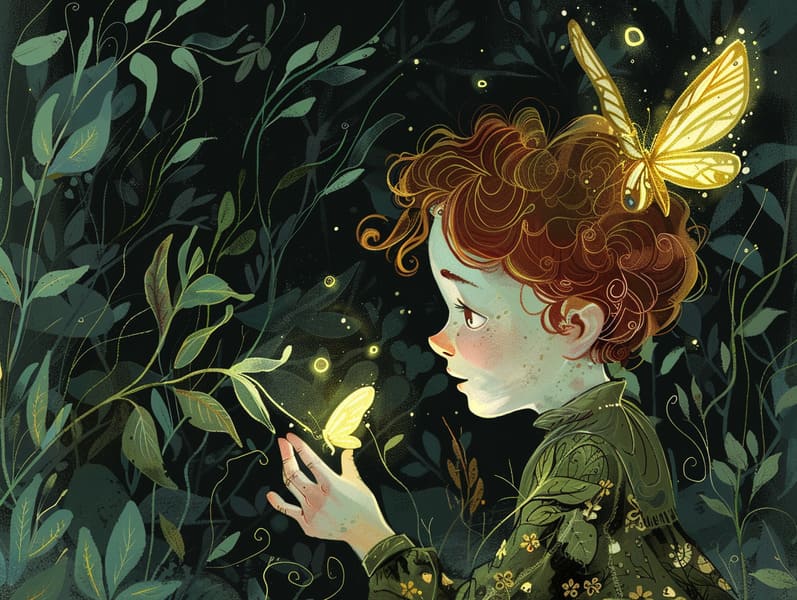
Bedtime is a important time for caregivers and children. It’s a moment to ease into rest, nestle in, and share the beauty of stories.
For ages, children's bedtime stories have been a esteemed ritual, offering more than just a way to nod off. They provide an opportunity for affection, education, and fostering vision.
Bedtime Stories: Their Importance
Nightly tales for children mean more than a way to conclude the day. They play a important role in a child’s progress and in enhancing the guardian-child rapport. Here’s why they are important:
1. Bonding Time: Reading together at bedtime encourages a special moment of connection between families. It’s a moment of proximity that helps children feel cherished and safe.
2. Speech and Language Skills: Being read to helps children develop their language acquisition. They acquire new expressions, understand syntax, and improve their comprehension and analytical skills abilities.
3. Creative Thinking: Children's tales carry them to dreamy worlds, encouraging fantasy. They picture characters, settings, and adventures, which energizes their creative thinking.
4. Emotional Growth: Children’s stories often feature characters facing difficulties and emotions. These scripts help kids handle and process their own reactions, promoting emotional skills.
5. Intellectual Growth: Paying attention to a narrative helps children develop focus, remembering, and thought processes. They gain to follow scripts, remember details, and project conclusions.
Incorporating Nightly Stories
Starting a bedtime custom that features narrating bedtime stories is straightforward and rewarding. Here’s how to develop a treasured part of your night-time ritual:
1. Find a Cozy Place: Select a snug place where you and your child can cuddle without disruptions. A peaceful bed or a peaceful reading nook works perfectly.
2. Pick the Right Time: Set a consistent time each night for reading. Predictability helps children be ready and makes the practice easier to maintain.
3. Select Age-Appropriate Stories: Find tales that fit your child’s developmental stage. Little kids might be engaged by easy books with clear stories, while bigger children may be drawn to longer stories with more complex plots.
4. Interact with the Story: Bring the tale be engaging by incorporating different character voices, adding special sounds, and getting your child to take part. Ask questions about the story to involve them.
5. Set a Relaxing Mood: Adjust the lights, use calm voices, and create a soothing environment to help your child wind down.
Locating the Best Bedtime Stories
There are countless choices where you can find perfect bedtime stories for children. Here are some ways to click here consider:
1. Children’s Literature: Look at your closest library or bookstore to find a broad selection of bedtime stories for kids. Looking through the books together can be a great activity that also helps children to pick stories that they enjoy.
2. Internet Resources: There are many sites that offer free bedtime stories. Sites like kids' story platforms provide a variety of short stories for kids that you can get for free. These choices are great for finding new and different stories without fees.
3. Apps for Storytelling: For nights when you’re too tired to read, think about audiobooks or storytelling apps. These can provide a soothing voice to read your child a story, ensuring they still get their bedtime story fix. Apps often offer interactive aspects that can capture their attention further.
4. Individualized Stories: Compose your own stories matching your child’s preferences. Personalized stories can be highly engaging and meaningful. You can engage your child in the creation process, making them a part of the adventure.
The Pros of Short Stories
Compact tales for little ones are highly effective for bedtime. They provide all the positives of longer stories but are more short, making them perfect for settling down before sleep. Here’s why short stories are a ideal choice:
1. Simple to Understand: Compact stories are clear and easy for kids to get, even after a long day. They can speedily grasp the narrative and enjoy the story without getting lost.
2. Immediate Attention: Compact stories readily engage children, capturing their engagement and creativity. This makes them suitable for keeping bedtime habits manageable yet enjoyable.
3. Flexible Choices: Brief tales give for variety in your bedtime storytime. You can get a different story each night, keeping the routine fresh and exciting for your child.
4. Saves Time: For busy parents, short stories are a time-efficient way to ensure children still get their nightly dose of storytelling. They fit well into a crowded schedule while still offering the full good points of a bedtime story.
The Effectiveness of "Read Me a Story"
The simple phrase, “Tell me a story,” can bring a world of magic for children. Reacting to this request not only fulfills a child’s request for attention and engagement but also develops lasting recollections. Here’s why it’s charming:
1. Attachment: Storytelling to your child creates a deep emotional relationship. It’s a time for intimacy, sharing, and bonding.
2. Custom: Creating a bedtime story routine creates a important tradition that children wait for every night. It’s a custom that can be shared through generations.
3. Shared Learning: As you narrate, you’ll watch your child’s advancement and development. Their engagement, reactions, and understanding of the stories develop, offering insights into their developing minds.
4. Secure Place: Bedtime stories provide a safe space for children to deal with emotions, face fears, and find comfort in the trusted presence of a parent.
In Summary
Nightly tales for children are a vital tool for growing a child’s advancement and establishing unforgettable experiences of connection.